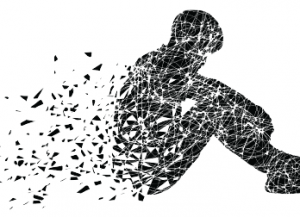
pimchawee / shutterstock.com
As if the fatigue, joint pain, etc., were not enough, new research has found many lupus patients must contend with clinical depression as well—something that can have a devastating cascade effect on other areas of their lives.
Are adults with childhood-onset lupus at greater risk of depression than lupus patients with onset of disease during adulthood? A team of researchers from Children’s Hospital of Philadelphia (CHOP) and the University of California, San Francisco (UCSF) were determined to find out. The scientists examined a group of 546 young adults with systemic lupus erythematosus (SLE) who were 18–45 years old. The group, which completed annual telephone surveys from 2002–2015, included 115 individuals who had juvenile-onset SLE (age <18 years at diagnosis).
The study, “Depression Risk in Young Adults with Juvenile- and Adult-Onset Lupus: Twelve Years of Followup,” appears in the March 2018 edition of Arthritis Care & Research.
Lupus in the Brain
Erica Lawson, MD, is a pediatric rheumatologist with UCSF, and was a co-author of the research. “Clinically, there is an interesting cognitive component to lupus that makes it different from many other rheumatologic diseases,” she says. “Lupus is well known to involve the central nervous system in a wide spectrum of ways, from overt seizures and psychosis to vague complaints of cognitive slowing, or ‘lupus fog,’ when patients don’t feel quite with it. It can be challenging to determine in each patient whether mental health issues are related to the disease process vs. a primary psychiatric disorder. As pediatric rheumatologists with an interest in long-term lupus outcomes, Dr. [Andrea] Knight and I wanted to know if individuals who develop lupus during childhood could be at particularly high risk of mental health disorders in adulthood.”
In the study, researchers “sought to identify differences in depression risk between young adults who develop lupus as children and those who became sick during adulthood,” Dr. Lawson continues. “Interestingly, even when we controlled for the other demographic and disease-related factors, the childhood-onset of lupus was correlated with an increased prevalence of depression. It may be that lupus activity in the developing brain, as occurs in patients with childhood-onset lupus, has a significant, long-term impact on mental health. Increased depression risk in the childhood-onset group could also be linked to the stress of having had lupus for a very long time, including the impact on social, educational and vocational outcomes.”
Education Level a Predictor
“The most startling thing,” says Dr. Lawson, “was the strong association we found between educational attainment and depression. In fact, in this cohort of patients from 18–45 years of age the strongest predictor of depression was educational attainment. Among patients who had childhood-onset of lupus and less than a high school education, there was a 50% prevalence of major depression. For those who attained a college degree or higher, the prevalence was 10%. We cannot glean the exact causes, but we are wondering, for example, if someone became depressed at the time the lupus began, does that account for their lower educational attainment? Or are we seeing that these patients are not able to go far in school or work in part due to being sick, which could subsequently lead to depression, increased life stressors and low socioeconomic status?”

